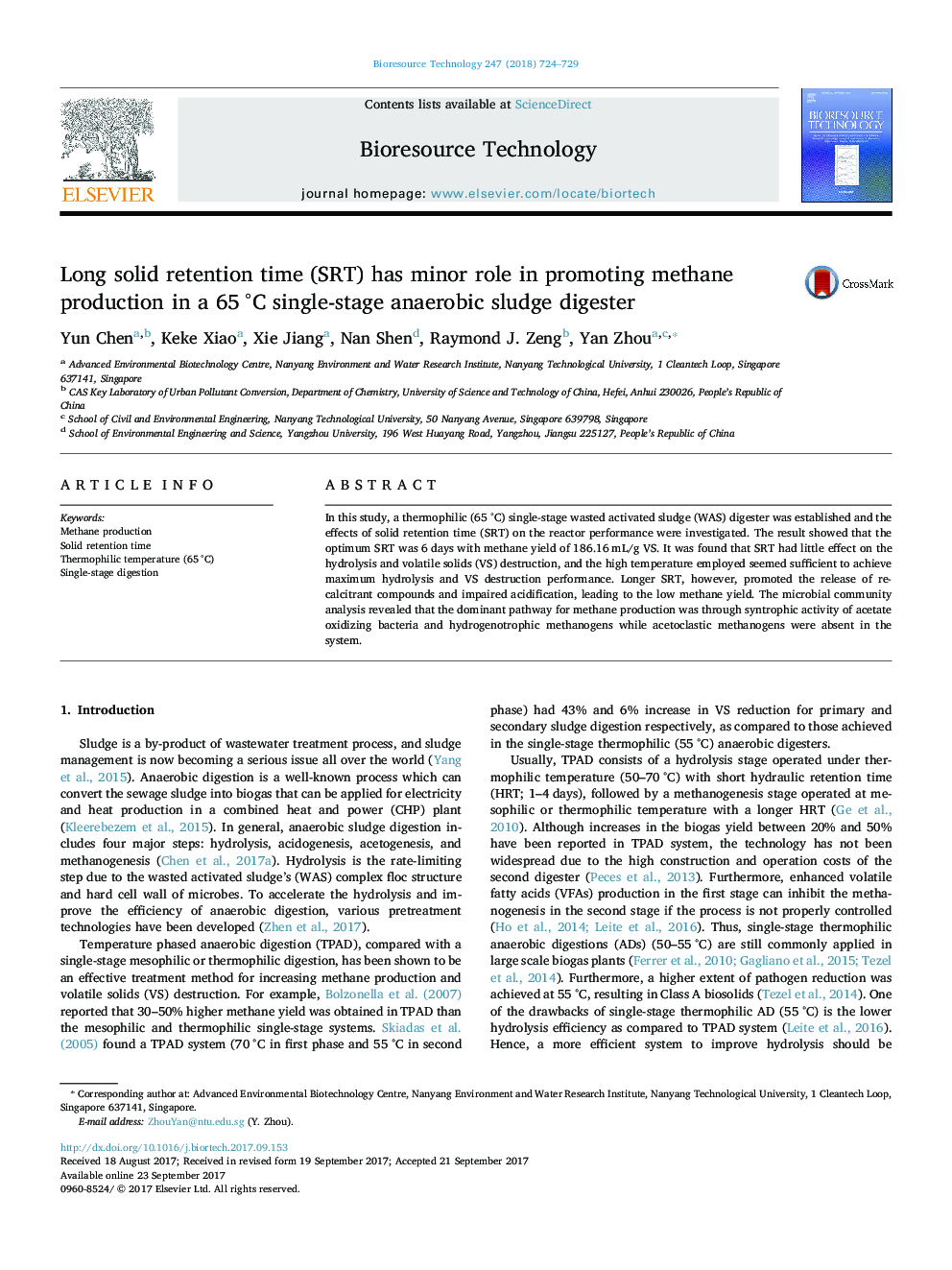| Article ID | Journal | Published Year | Pages | File Type |
|---|---|---|---|---|
| 4996698 | Bioresource Technology | 2018 | 6 Pages |
â¢Effects of SRT on methane production were studied in a 65 °C AD reactor.â¢The optimum SRT was 6 days with methane yield of 186.16 mL/g VS.â¢Long SRT enhanced the recalcitrant compounds release and worsen the methane yield.â¢The main pathway for methane production was through syntrophic acetate oxidation.
In this study, a thermophilic (65 °C) single-stage wasted activated sludge (WAS) digester was established and the effects of solid retention time (SRT) on the reactor performance were investigated. The result showed that the optimum SRT was 6 days with methane yield of 186.16 mL/g VS. It was found that SRT had little effect on the hydrolysis and volatile solids (VS) destruction, and the high temperature employed seemed sufficient to achieve maximum hydrolysis and VS destruction performance. Longer SRT, however, promoted the release of recalcitrant compounds and impaired acidification, leading to the low methane yield. The microbial community analysis revealed that the dominant pathway for methane production was through syntrophic activity of acetate oxidizing bacteria and hydrogenotrophic methanogens while acetoclastic methanogens were absent in the system.
